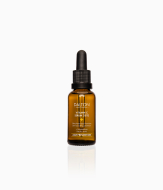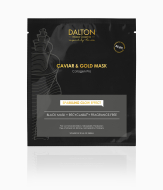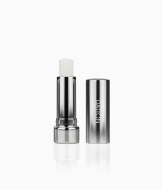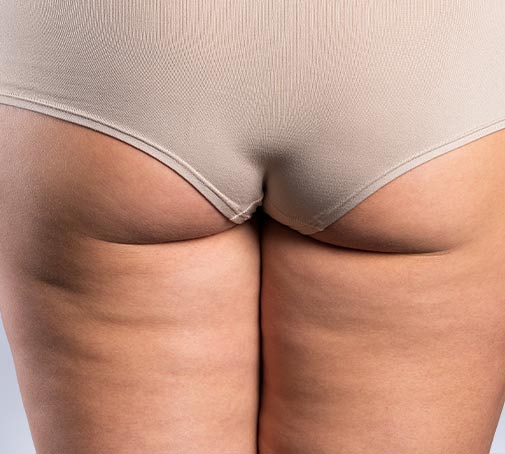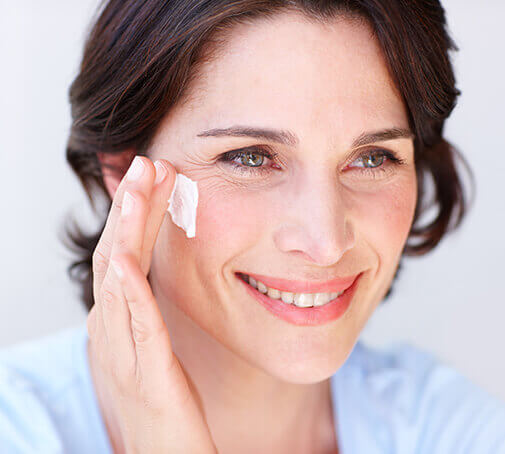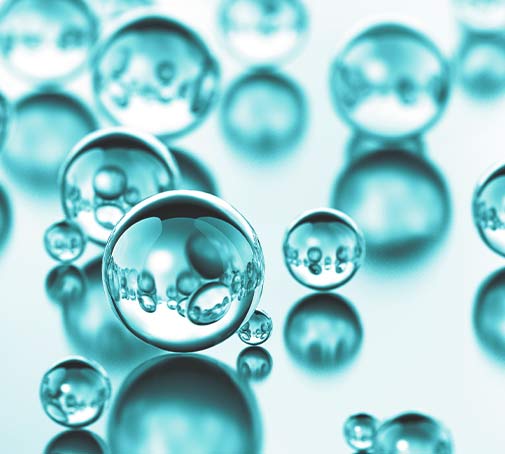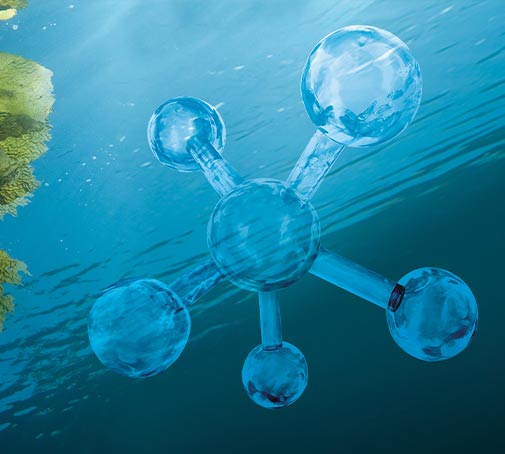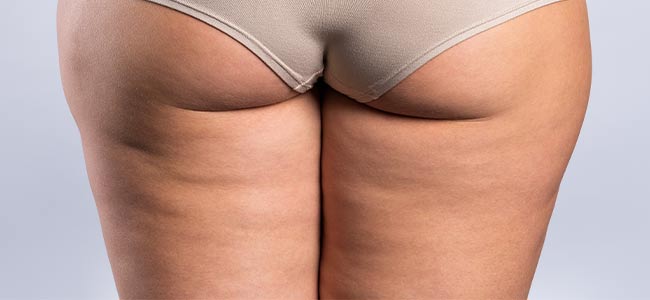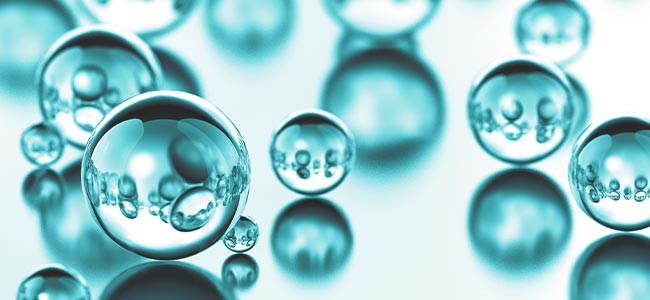
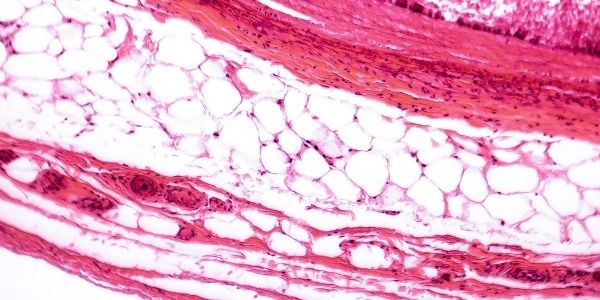
Collagen for Wrinkles
Our body produces many important ingredients for beautiful skin on its own, such as hyaluronic acid, ceramides and collagen. The latter in particular is essential for keeping the connective tissue firm and elastic. But what to do when collagen levels decline as we age? Here are our tips.
Function
Collagen is the most common protein in our bodies and makes up around 30% of the total proteins present in the human body. It provides structural support to tissues and helps to maintain skin elasticity and firmness. There are different types of collagen that have various important functions besides promoting firm skin. You can also find collagen as a protein in bones, cartilage and teeth.
The Role of Collagen for Skin
Collagen is important for our skin in many ways: It provides structure and support and is a major building block of the skin alongside ceramides, the NMF (Natural Moisturizing Factor) and hyaluronic acid. It can make up around 80% of the dermis.
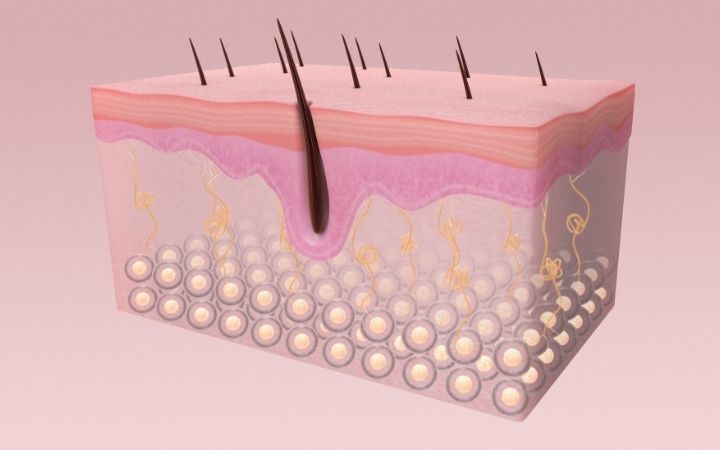

As we age, natural processes slow down – skin renewal takes longer and both collagen and hyaluronic acid production decrease continuously. This raises the question: How does it affect our skin when natural collagen production decreases?
- Skin loses elasticity
- Wrinkles appear
- Skin is less plump
- Uneven skin and cellulite can develop
The following solution is what springs to mind immediately: The less collagen the body produces on its own, the more we can supply it from the outside via anti-aging beauty products. Unfortunately, it’s not that simple in reality. Collagen has its place as an ingredient in skincare and cosmetics and offers many benefits. It has moisturizing properties and can also inhibit the breakdown of collagen.
However, it is much more efficient to use ingredients and products that stimulate the skin’s own collagen production and tackle the source of the problem.
As we age, natural processes slow down – skin renewal takes longer and both collagen and hyaluronic acid production decrease continuously. This raises the question: How does it affect our skin when natural collagen production decreases?
- Skin loses elasticity
- Wrinkles appear
- Skin is less plump
- Uneven skin and cellulite can develop
The following solution is what springs to mind immediately: The less collagen the body produces on its own, the more we can supply it from the outside via anti-aging beauty products. Unfortunately, it’s not that simple in reality. Collagen has its place as an ingredient in skincare and cosmetics and offers many benefits. It has moisturizing properties and can also inhibit the breakdown of collagen.
However, it is much more efficient to use ingredients and products that stimulate the skin’s own collagen production and tackle the source of the problem.
How to Support Collagen Production
So which products are suitable to stimulate collagen synthesis? Weekly chemical peels are a great option. The 20% AHA Exfoliant improves collagen production and skin hydration, while also fighting wrinkles and dark spots.
Vitamin C is an active ingredient that you should also have on your radar. Our highly-concentrated 15% Vitamin C Serum provides an intense glow, improves elasticity and slows natural skin aging.
The REGENERANT collection was developed specifically for this purpose. The isoflavone contained in protein-rich soybeans support collagen production and also boost skin regeneration.
Our DALTON Celumer Marine Extract has been proven to increase collagen by up to 43%. It is included in all our anti-aging creams and also improves hyaluronic acid production by 48%. The REGENERANT products contain this extract as well, which makes them doubly effective against collagen loss.
Types of Collagen
There are many different types of collagen. Here are four of the most common ones.
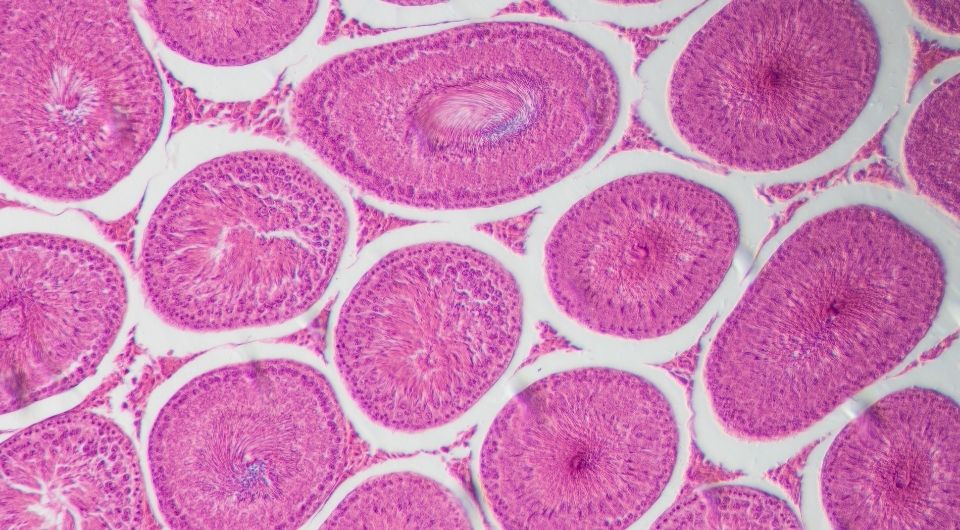

Collagen type I
Where? Skin, bones, tendons, ligaments, fascia, dentin
Function: The skin gains elasticity and firmness. The bones benefit from increased stability and flexibility.
Collagen type II
Where? Intervertebral discs, cartilage tissue, vitreous body of the eye
Function: Stabilizes cartilage and joints.
Collagen type III
Where? Skin, tendons, bones, cartilage, blood vessels, skeletal muscles
Function: Makes tissue and internal organs elastic.
Collagen type IV
Where? Basement membrane (cell membrane of skin cells and vascular cells; separates the epidermis from the dermis)
Function: Strengthens cells and tissue.
Collagen type I
Where? Skin, bones, tendons, ligaments, fascia, dentin
Function: The skin gains elasticity and firmness. The bones benefit from increased stability and flexibility.
Collagen type II
Where? Intervertebral discs, cartilage tissue, vitreous body of the eye
Function: Stabilizes cartilage and joints.
Collagen type III
Where? Skin, tendons, bones, cartilage, blood vessels, skeletal muscles
Function: Makes tissue and internal organs elastic.
Collagen type IV
Where? Basement membrane (cell membrane of skin cells and vascular cells; separates the epidermis from the dermis)
Function: Strengthens cells and tissue.
Take preventive action against collagen loss
You can also stimulate the formation of collagen by eating certain foods. In addition to vitamin C, you should ensure you have plenty of amino acids in your diet.
External factors can also have a negative effect on collagen production. These include excessive UV radiation or an unhealthy lifestyle (smoking, stress, etc.).

